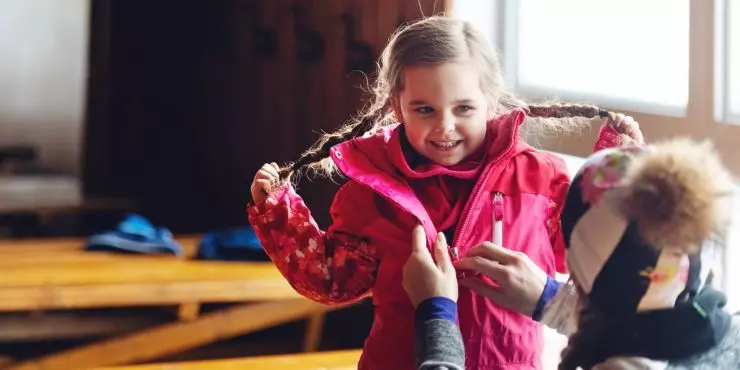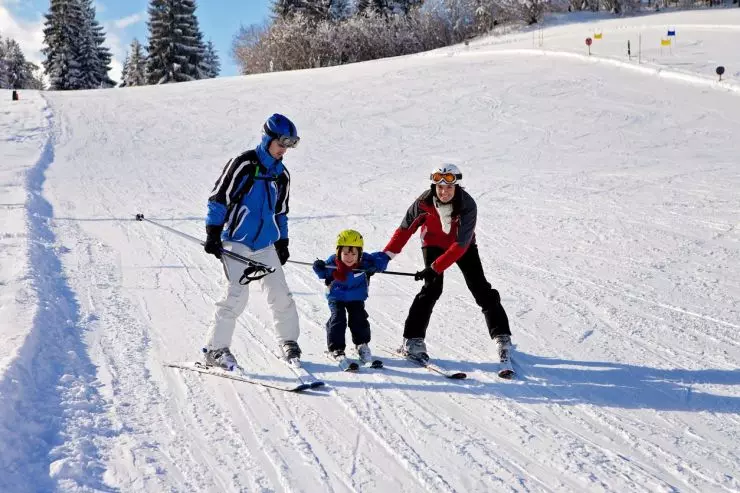
Winter sports are a fantastic way to embrace the beauty of the season and stay active. Whether you're a seasoned pro or trying a winter sport for the first time, safety should always be a top priority. From skiing and snowboarding to ice skating and ice hockey, here are some essential safety tips for all ages to enjoy winter sports responsibly.
Winter Sport Safety for All Ages
Gear Up for Safety
Before hitting the slopes or the ice, make sure you're properly equipped with the right gear:
- Always wear a properly fitting helmet, especially when skiing, snowboarding, or ice skating. Helmets greatly reduce the risk of head injuries.
- Dress in layers to stay warm and dry. Opt for moisture-wicking base layers, insulated outerwear, waterproof gloves, and warm socks. Don't forget sunglasses or goggles to protect your eyes from sun glare and snow.
- Ensure your winter boots are suitable for the activity you're participating in, whether it's skiing, snowboarding, or simply walking in snowy conditions.
- Regularly check your equipment, such as skis, snowboards, and ice skates, for any damage or issues that might affect your safety.
Take Lessons and Get Proper Training
For those trying winter sports for the first time or looking to improve their skills, taking lessons from professional instructors is a great way to learn how to safely enjoy the winter activity of your choosing. Proper training helps you learn the fundamentals, understand safety procedures, and reduce the risk of accidents. This is especially important for activities with an increased risk of head injuries like skiing or snowboarding, hockey, ice skating, and snowmobiling.
Be Aware of Your Abilities
Know your own skill level and choose appropriate slopes or trails that match your proficiency. Avoid attempting advanced terrain if you're a beginner or not experienced in a particular sport. Be sure to assess the risk and avoid situations that may put yourself or others at unnecessary risk.
Follow Resort and Trail Rules
When at ski resorts or winter sports facilities, adhere to posted rules and guidelines. Respect trail signs and closures, follow designated routes, and yield the right of way to others when necessary.
Stay Hydrated and Take Breaks
Cold weather can lead to dehydration, so drink plenty of fluids throughout the day. Take regular breaks to rest and warm up in a lodge or shelter if needed.
Weather Awareness
Stay informed about weather conditions and forecasts before and during your winter sports activities. Be prepared for changing weather and dress accordingly.
Buddy System
Whenever possible, participate in winter sports with a friend or family member. Having a buddy can provide assistance in case of an emergency and add to the overall enjoyment of the experience.
Know the Signs of Frostbite and Hypothermia
Frostbite Signs:
- Cold and numb skin
- Loss of sensation
- Tingling or prickling
- Skin may turn blue, purple, or gray
- Severe frostbite can lead to the formation of blisters filled with clear or bloody fluid
- Stiffness and joint pain
Signs of Hypothermia:
- Mild hypothermia often starts with shivering as the body attempts to generate heat
- Cold and pale skin
- Slurred speech
- Confusion and poor coordination
- Fatigue
- Weak pulse and shallow breathing
- Loss of consciousness
Carry Safety Essentials
Carry a basic safety kit, including items like a first aid kit, cell phone, trail map, and extra clothing, in case of emergencies.
Ice Safety
For ice-related activities like ice skating or ice fishing, ensure that the ice is thick enough to support your weight. Follow local guidelines and always check for ice thickness before venturing onto frozen bodies of water.
Child Safety
If children are participating in winter sports, provide them with age-appropriate equipment and supervision. Keep them warm and ensure they understand safety rules.

Know When to Stop
Listen to your body. If you're feeling fatigued, cold, or unwell, it's okay to call it a day and head back indoors.
Stay Safe This Winter
Incorporating these safety tips into your winter sports activities will help ensure a safe and enjoyable experience for individuals of all ages. Winter sports can be a thrilling way to embrace the season, and with the right precautions, you can make the most of the snowy wonderland while staying safe and injury-free.